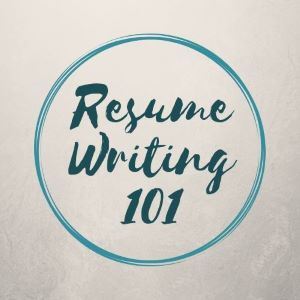|
Resume Writing 101: Self-Directed TrainingThe NRWA’s Resume Writing 101 is a self-paced learning program that delivers practical, ready-to-use resume writing tips to improve your skills, whether you’re a seasoned professional or just starting out in the field. The full course can be immediately accessed for free by all members ($198 for nonmembers), or you may customize your learning by selecting the individual modules below ($30/each nonmembers). Each module qualifies for 1 CEU. The training is an automated program. You may also download the PDF version of the learning materials. There are short quizzes throughout the training. You must get at least 80% of the questions correct, per segment, to be given the CEUs. The Resume as a Marketing Tool (Module 1):The focus of this segment is on marketing concepts used in resume writing. You will learn how to sell benefits instead of features and emphasize successes, contributions, and achievements. Learn how to incorporate design elements and write compelling content to effectively market your resume clients. Our first set of exercises focuses on marketing concepts that are used in résumé writing. In this section, you will learn how to:
Writing Concepts (Module 2):A good advertising copywriter knows her audience. She knows what consumers want and what product features and benefits to write about to persuade consumers to buy. As resume writers, we must do the same. Learn how to think like a copywriter and create resumes that generate a “call to action” for your clients. We must know what our client’s prospective employers want, and we must know how to write copy that will persuade hiring managers to “buy”… or, in the job-search scenario, “hire” our client. The reader must come first when it comes to resume strategy. Our aim as resume writers is to focus on how the candidate can deliver what an employer needs. Common Grammatical Errors (Module 3):
This segment covers grammatical errors commonly found on resumes, including capitalization, number usage, and plurals and possessives. This segment reviews the most common grammatical topics such as parts of speech, run-on sentences, parallel structure, dangling or misplaced modifiers, tense, subject and verb agreement, and pronoun usage. Energizing Job Descriptions (Module 4):
One of the distinguishing features of an excellent resume are job descriptions. Like a good headline, the first sentence should pique the reader's attention and draw him into the copy that follows. Our goal as resume writers is to get the potential employer's attention. We do this by energizing our job descriptions and focusing on relevant accomplishments. This segment focuses on job descriptions and related issues such as:
Perfecting Punctuation and Capitalization (Module 5):
A common question for the public, "Does the period go inside or outside the quotes?" should not be a common question for a writer. This segment will hone your skills on proper capitalization, using numbers, and punctuation. This segment reviews the most common mechanical issues in résumé writing. Topics include capitalization, punctuation, and number usage including the use of: hyphens, apostrophes, quotations, commas, accent marks, abbreviations, monetary expressions, times, dates, percentages, and capitalization of titles, positions, and departments. The rules used in this training segment are based on information from the Gregg Reference Manual. Writing Standout Cover Letters (Module 6):
First impressions are important. Use what you learn in this session to help your clients stand out when introducing themselves to prospective employers. In this training segment, you will learn how to:
New College Graduate Resumes (Module 7): New college graduates and newly completed degrees have special requirements in writing resumes. In this segment, you'll learn how to deal with listing degrees, challenges for new college graduates, and common rules for formatting, lengths, and the presentation of resumes. Dynamic Writing that Pops - Resume Writing Strategies (Module 8): You will learn about the three types of resume formats, how to use competencies and metrics-driven content to place the individual ahead of the crowd, and how to showcase results-focused accomplishments. Advanced Resume Writing Strategies (Module 9): This segment covers writing strong profile statements, centrally-focused theme resumes, and advanced design and formatting. |  Explore Additional Educational Resources
|
